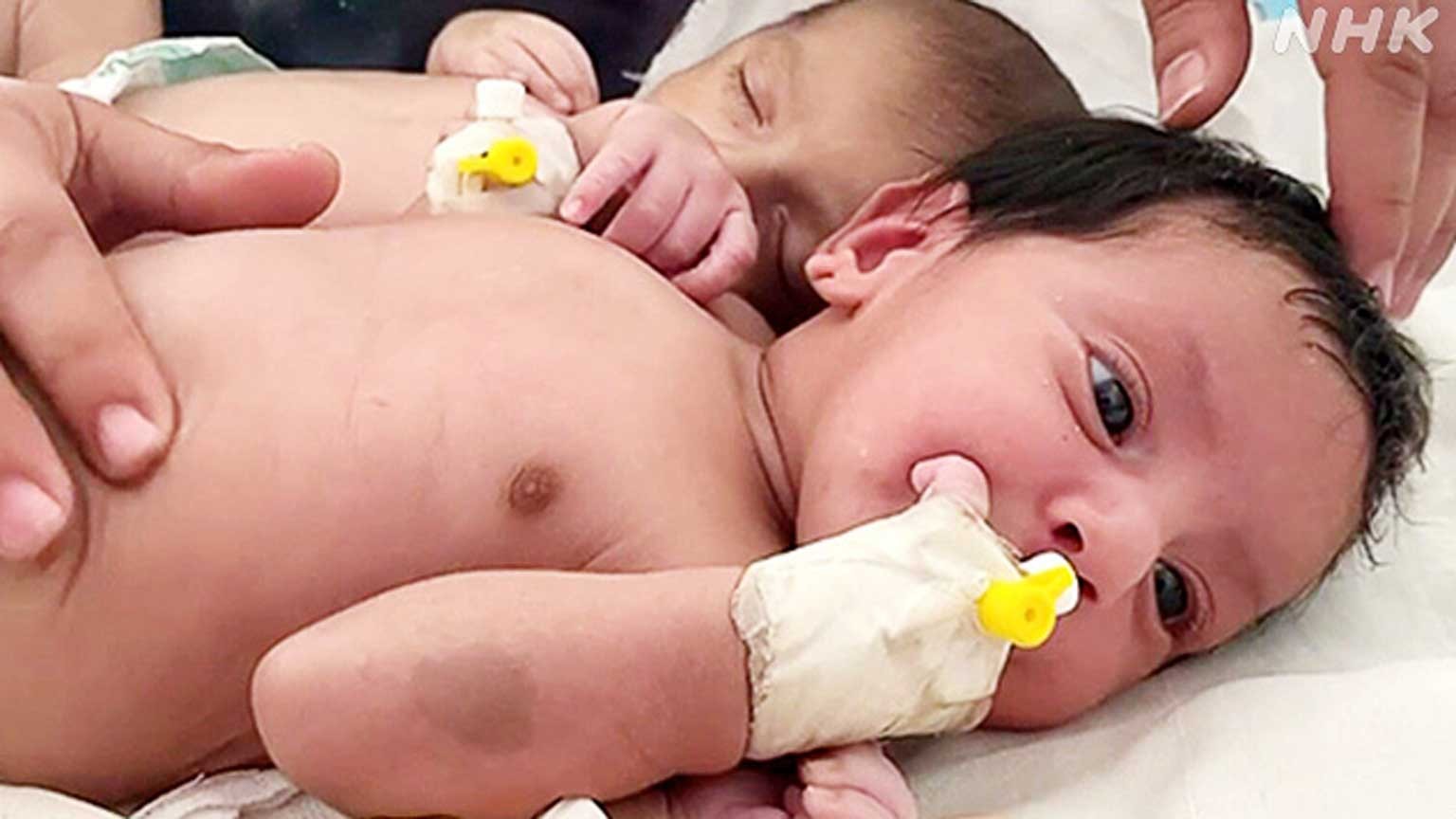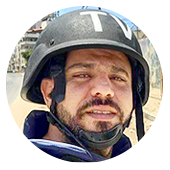Many evacuees who fled from Israeli attacks in northern Gaza are now taking shelter in the southern city of Rafah. But few hospitals are operating in an area now packed with nearly 1.5 million people. Crowds of women are waiting to see doctors at Emirates Hospital, which has one of the few obstetrics and gynecology departments in the region.
UNICEF estimates that more than 25,000 babies have been born in Gaza since October last year ― meaning a birth every eight minutes.
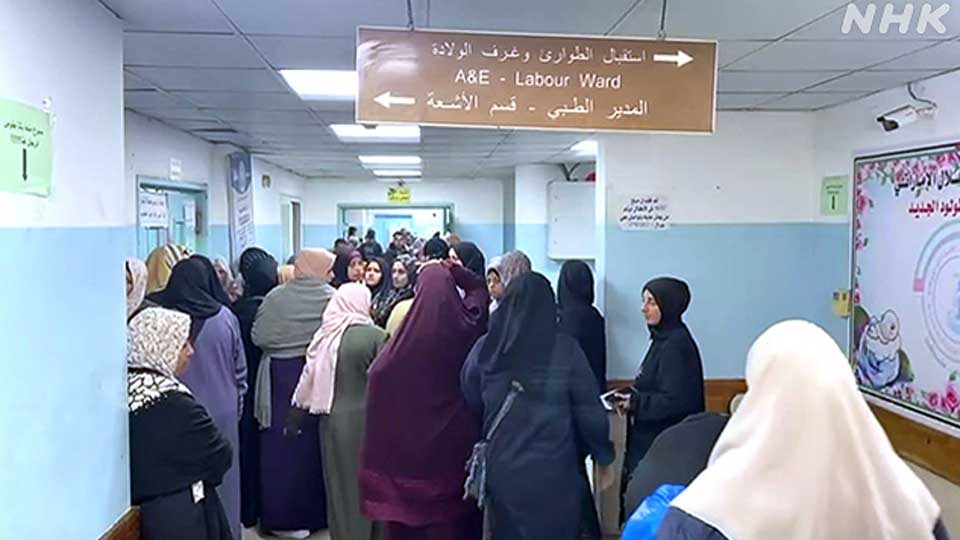
Even before the current conflict began, many newborns in the Gaza Strip were underweight due to their mothers' malnutrition. Experts say these numbers have surely increased.
Hospital officials struggled to assemble 20 incubators for the newborn intensive care unit (NICU). But their efforts did not come close to meeting the hospital's present needs, as it is treating more than 60 low-birthweight babies every day.
Doctors have no choice but to put two or three babies into one incubator designed for a single baby.
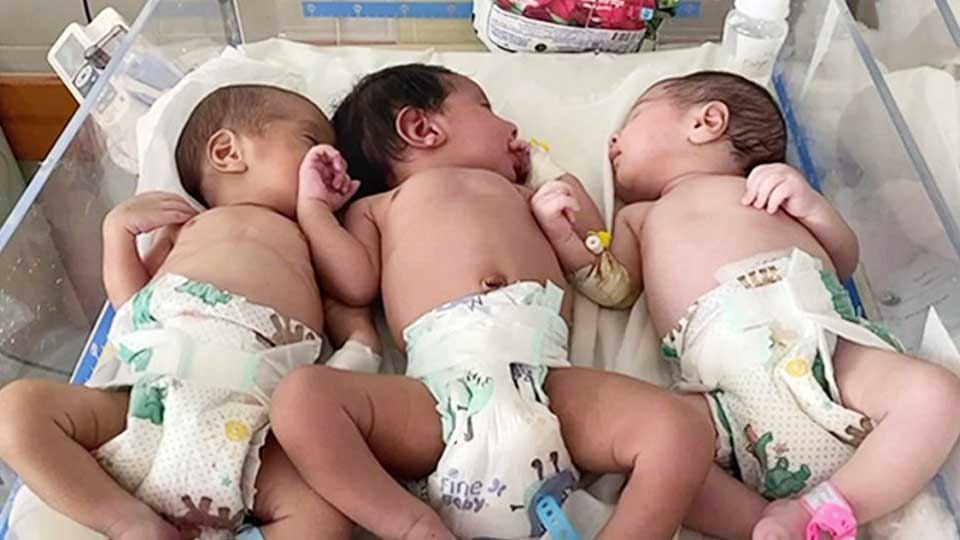
Doctor Mohammad Salama is the Head of the hospital's NICU.
"Most hospitals in Gaza have stopped functioning and no other place can accept the children," he says. "So we can't avoid two or three babies sharing an incubator. We are often helpless and have to just let some babies die because we can't give them medicine or oxygen. Some also die from the cold in tents or shelters.
"I didn't become a doctor just to see children die. I'm overwhelmed every day. I'm at the edge of my capabilities."
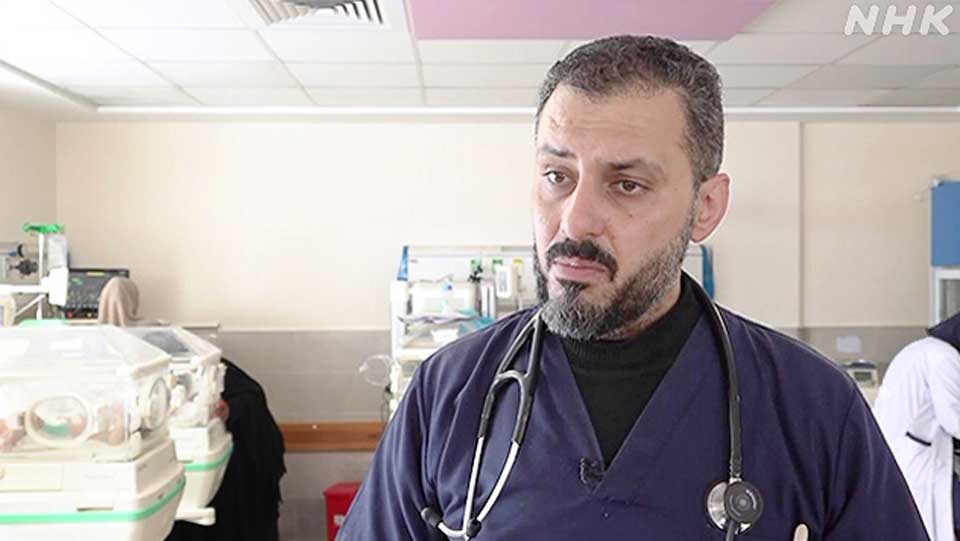
Severe shortages of daily necessities
Bashira Abu Saleh and her husband Mahmoud Abu Metliq had a baby on January 7. Their daughter, Rosol, was only 1 month old when NHK first met the family at the hospital.
Rosol had been coughing for several days so her parents used a donkey to transport her to the hospital. Bashira said they waited for more than six hours to see a doctor.
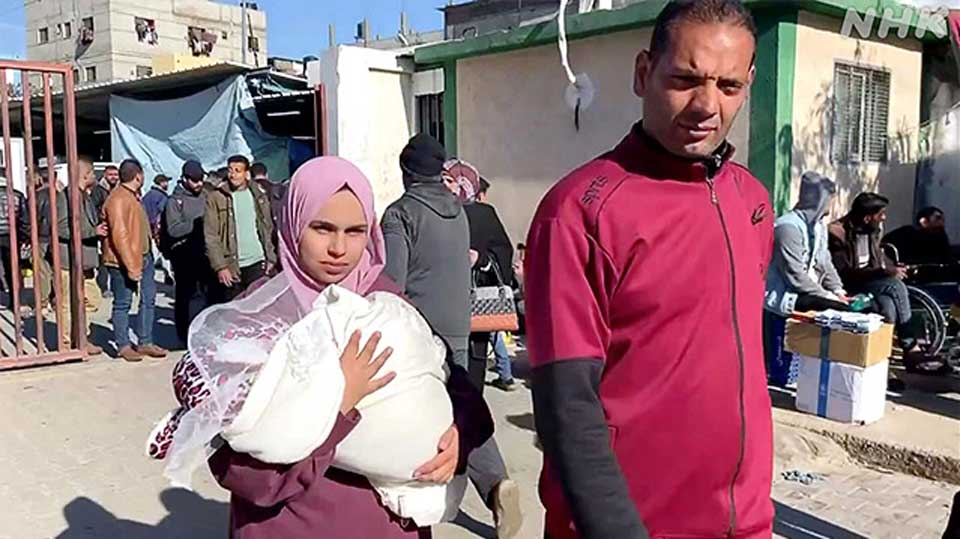
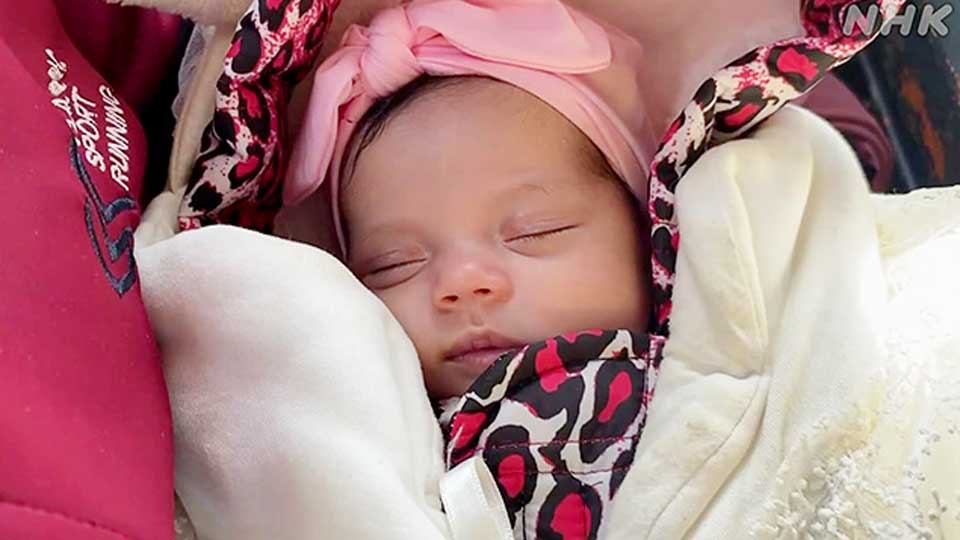
The couple originally lived in a small town near the southern city of Khan Younis. Bashira was six months pregnant when the Israeli military attack began in October. They fled to Rafah in December.
She said she had hoped that the war might be over by the time her baby arrived. But in January, she was hospitalized to give birth by Caesarean section amid continued air strikes on the city.
"I underwent surgery at around 3:00 p.m. We would normally be hospitalized for a day after childbirth, but I had to leave the hospital the following morning. Other pregnant women were coming to the hospital one after another, so the hospital wanted my bed open."
Because she could barely walk so soon after her surgery, she had to temporarily leave Rosol at the hospital.
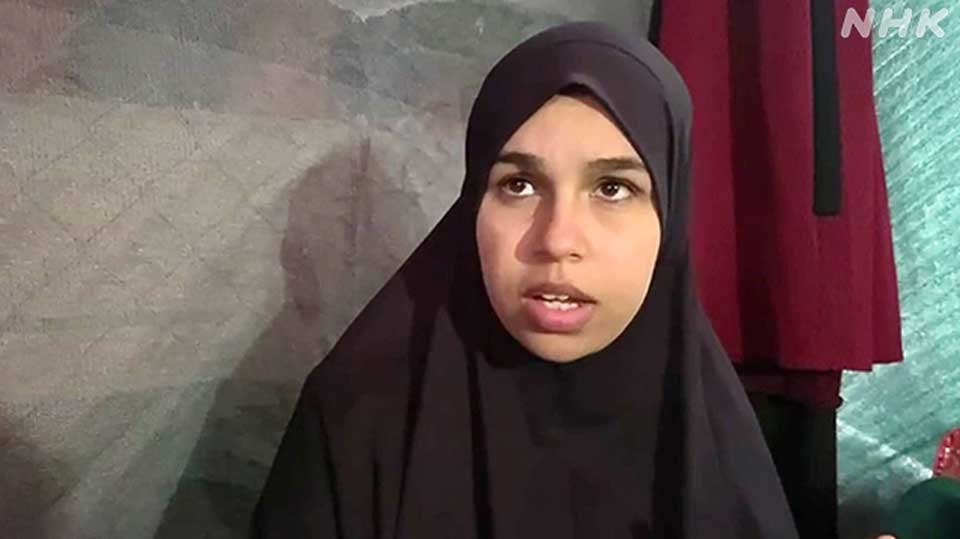
Bashira was living in a tent in February with her husband, Rosol and her 3- and 4-year old sisters, and other relatives. Temperatures in the Gaza Strip sometimes dropped below 10 degrees Celsius that month.
She says she can't secure the bare minimum of necessities for her baby.
"I don't have much food, so I'm not in a good condition to breastfeed my daughter," she says. "We don't have enough formula, either. And I can only get 10 diapers a week at most."
Bashira says she has moved her family from one place to another, seeking the safety that children in other parts of the world take for granted.
"As a mother, I want to do whatever I can for my children. I want to prepare a warm place for them. But I can't. That's really painful."
UNICEF: No safe place for Gaza's children
A UNICEF official describes Gaza as the most dangerous place in the world to be a child.
"This moment of birth or bringing new life into the world is meant to be one of joy," says UNICEF spokesperson Tess Ingram. "But in Gaza, it really is one of fear. Mothers talked about being incredibly worried about the health of their pregnancy, of their ability to safely give birth, and of the challenges of raising a very small child in an environment that's at risk from ongoing bombardments, but also from the humanitarian crisis on the ground."
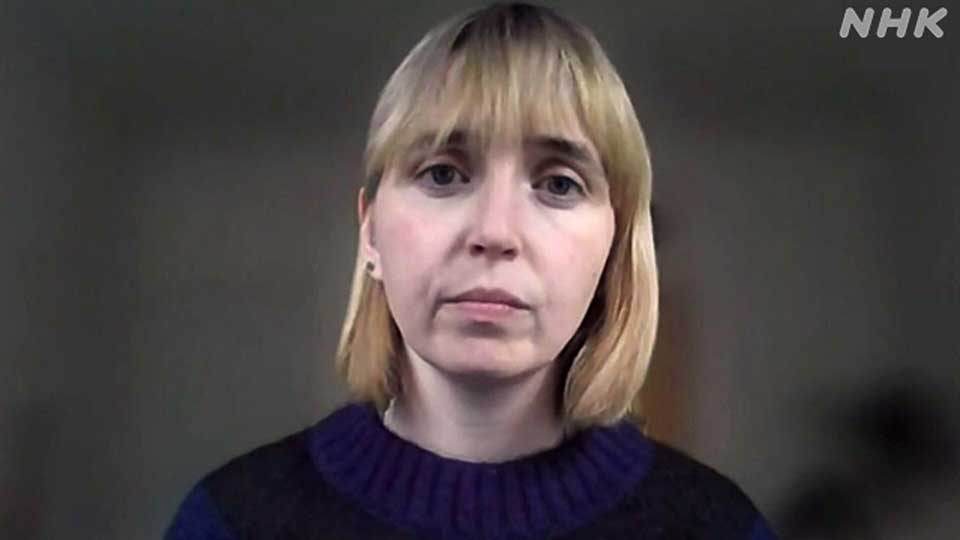
Ingram says Gaza has no safe place for people with small children. She says an immediate humanitarian ceasefire is needed to help them.
"The challenge of a family moving, particularly a challenge within a family with young babies, is a very difficult proposition," Ingram says. "And it would be very hard for them to find somewhere safe to go with the services that they need for basic survival."
